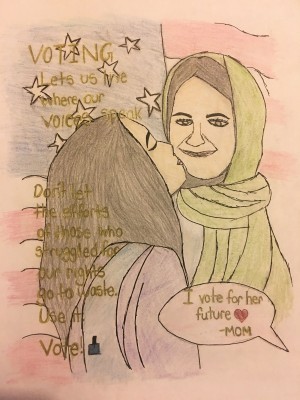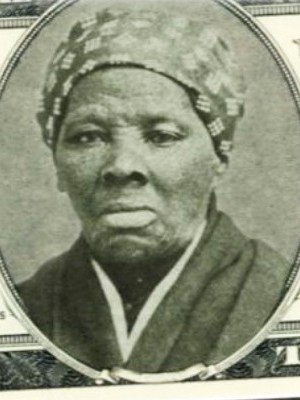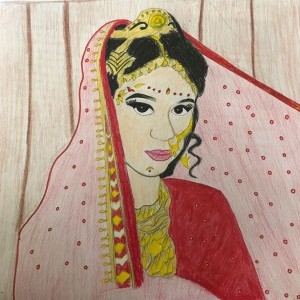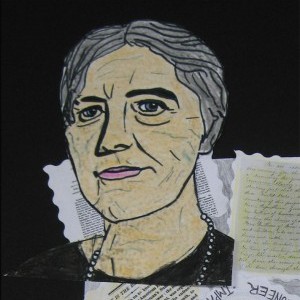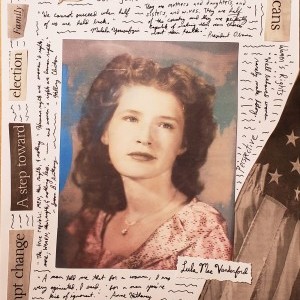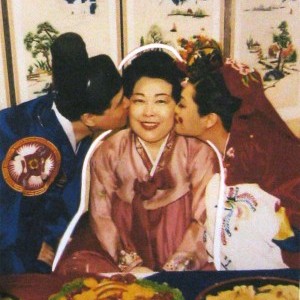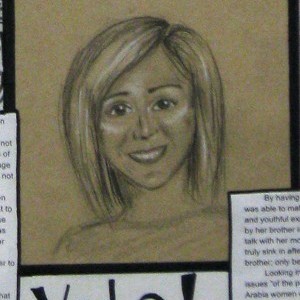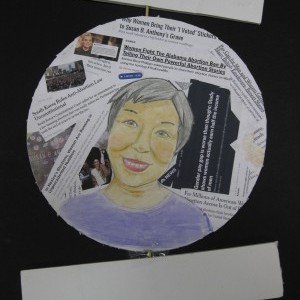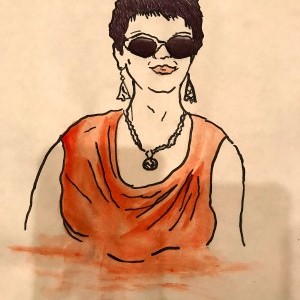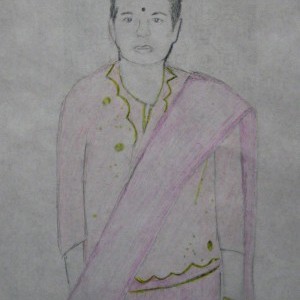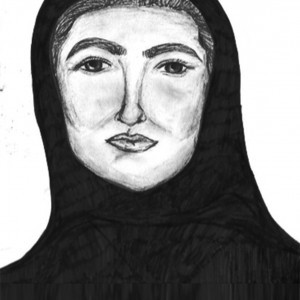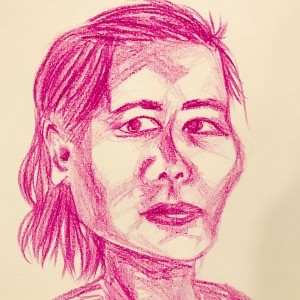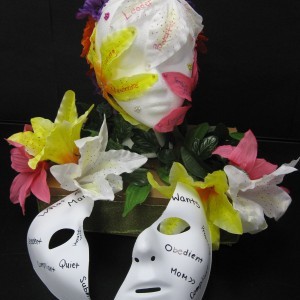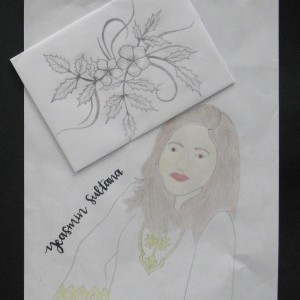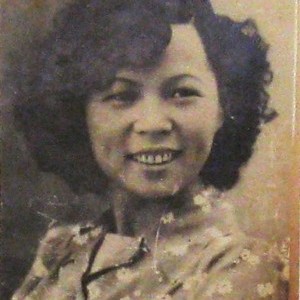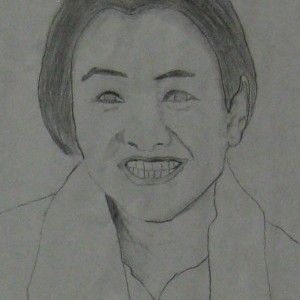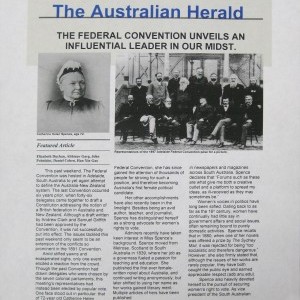Farhana Ratree, Jennifer Jiang, Pooja Reddy, Christina Ramsarran & Angelina Jimenez
Townsend Harris High School | Flushing, NY | 11th Grade
Inspirational Family Member
My Mother
My mother, Mrs. Annetta Ramsarran, came to this country when she was 16 years old thanks to the sponsorship from my grandparents. She took a plane ride from Guyana to the US then and began her life over here. Although there was a consistency with language, the cultural shifts and environment changes were the greatest changes in her life. Inclusive to this was the experience of voting. My mom began voting in the early 2000s when I was still very young and she had finally become a citizen. I remember seeing her studying extremely hard for her citizenship exam which I could only imagine carried more weight into her life besides having to care for 3 young children as a stay-at-home mother.
Unlike my mom, I was born in the US and at birth given the rights of an American citizen, which includes the ability to vote as a young woman at the age of 18. After finally obtaining the ability to vote as an American citizen, my mother continued to exercise her right to have her political voice heard across the board throughout the years. As I’ve gotten older, I’ve seen her political standpoints become less than that of a strict conservative who maintained that stance due to religion and rather the ideals of someone who’s seen both sides of the spectrum. She’s grown more receptive to contemporary issues being dealt with and she passes down her bipartisan standpoints to my sisters and I in hopes that we are able to make our own sound decisions later down the line. She makes sure my older sister goes out to vote at every given opportunity because she understands the importance every person has when it comes to voting for anything, whether it be minuscule or great in magnitude. The right to vote — or rather the right to have your voice heard — is something my mother is proud of and will continue to protect as she has her voice heard in our nation.
Historical Figure I Admire
Harriet Tubman
Harriet Tubman, born in the 1820s and dying in 1913, lived through the abolition of slavery and efforts to achieve suffrage for women. The abolition of slavery played a major contextual role in the journey for gaining female suffrage. The Seneca Falls Convention, gathered in 1848, developed the Declaration of Sentiments that called for women’s rights. However, during this period there was wide contention on whether the abolition of slavery and female suffrage should go hand in hand.
While the ratification of the 14th amendment provided huge progressions for African American men in regards to voting, women were specifically not included. While Harriet Tubman did not live to see the ratification of the 19th amendment, her life story greatly shaped her as the individual that is admired today. Her biographical story, specifically the events of her childhood, her experiences with the Underground Railroad, and advocation after the Civil War, define Harriet Tubman as an individual and showcases the feats she accomplished in regards to advancing human and women rights.
Harriet Tubman’s early years largely defined her as an individual. From an early age, she displayed willingness to protest against the injustices of slavery. This is specifically shown in an incident, in which Harriet Tubman attempted to protect a slave escaping from his owner. Harriet Tubman recalls the incident explaining, “The weight broke my skull … They carried me to the house all bleeding and fainting. I had no bed, no place to lie down on at all, and they laid me on the seat of the loom, and I stayed there all day and the next.” In this early instance, Tubman clearly demonstrated her desire for equality and willingness to risk her life, as demonstrated through her head injury. Her early life events in which she not only experienced the horrors of slavery but actively made an effort against them, with this instance occurring at a mere age of 12, demonstrates Tubman’s strong desire for a more equal world. Ultimately, these early events shaped Tubman by providing her with a trajectory in which her experiences informed and propelled her to advocate and enact change.
Harriet Tubman’s experiences with the underground railroad also defined her as an individual. Subsequent to her own escape from slavery, Harriet Tubman played an active role as the conductor of the Underground Railroad, leading slaves to freedom in northern states and Canada. Despite the treachery on this path and defying the Fugitive Slave Act, Harriet Tubman put her life on the line to help slaves. If slaves became hesitant on their path, Tubman would exclaim, “You’ll be free or die a slave!” This instance demonstrates that she was adamant and dedicated to showing slaves to freedom, which shapes her as a compassionate individual. Through the Underground Railroad, Tubman is also defined, specifically by the phrase “Moses of Her People.” Tubman’s immense interest in expanding freedom for slaves, ultimately showcases her interest in advancing human rights.
Subsequent to the Civil War, Harriet Tubman was largely focused on philanthropy. Her campaign for women’s rights largely happened during this period with her participation in meetings and speeches. Specifically, she spoke for the advocation of women’s suffrage in New York, Philadelphia, and Boston. Tubman was particularly focused on the rights of African American women, as shown through her attendance and her role as “a speaker at the first meeting of the National Association of Colored Women.” Harriet Tubman’s years after the Civil War evidently shapes her legacy and character, as one that focused on human rights and women’s rights. Her participation and advocating for such ideals defines Harriet Tubman as an activist of her time, ultimately always seeking justice.
The events of her childhood, her experiences with the Underground Railroad, and advocation after the Civil War, defines Harriet Tubman as an individual and showcases the feats she accomplished in regards to advancing human rights and women rights. Tubman displayed an immediate impact in society by providing slaves with freedom they would otherwise not achieve without the Underground Railroad. She furthered the causes of human and women rights through her active participation in society. In modern day society, Tubman leaves an immense impact by exemplifying an individual that defies expectations and grows into a leader. Her impact on modern day society teaches us that a leader must have “courage, resolve, and accountability.”
SOURCES +
What the Project Means to Me
Throughout this project, we have studied the lives of two women, neither of which were born and raised in America. Yet we have realized that America relates to both of these women, either directly or indirectly. The course of this country’s history was changed by the work of foreign women like Irish suffragist Frances Power Cobbe, while the course of the lives of immigrant mothers and daughters have been changed by the gifts given by this country in part thanks to these women. We’ve learned that American history is not filled only by the successes of and benefits granted for white men, but rather it is also occupied by the influence of women around the world and ultimately freedom and rights for all.
American freedoms, although they were delayed for many, are now shared thanks to the work of both women and men, American and alien alike. Thanks to them, a wider array of people seeking a better life can find it in this country.
The right to vote is essential. It gives a voice to the citizens in a way like none other, in a way that is not experienced by many around the world. The fact that all the people in the United States are free to exercise this right is a treasure, especially after realizing that this right is rarer than we would have otherwise expected. Just one generation ago, there was a woman that was not granted a voice. She was forced to live in a corrupt reality in which there was nothing she could do about the way she was governed. Luckily women like Frances Power Cobbe used the power of their words and worked hard so that this reality does not have to exist for all women. Mothers and daughters are now able to escape the harsh reality of corrupt governments under the safety of the inclusive democracy that defines the United States of America.
Explore the Archive
More From This Class
Click on the thumbnails below to view each student's work.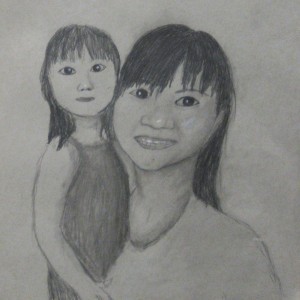
Vivian Chen, Josephine Chen, Ivan Chan, Zafirah Rahman, Neeharika Reddy, Daniel Shi, Daniel Shi, Jacqueline Cho & Osiris Guerrero

Jennifer Moran, Adebola Ademola, Julia Hong, Vicki Kanellopoulos, Inga Kulma, Maimunah Virk, Deborah Molina & Kailey Van
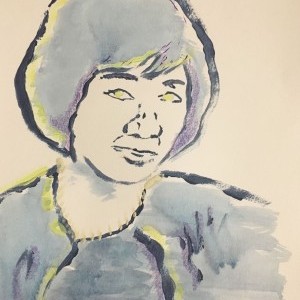
Kristina Chang, Sarah Chowdhury, Bethany Leung, Letian Fang, Cathy Choo, Kelly Chan, Emily Tan, Adamary Felipe & Kenney Son

